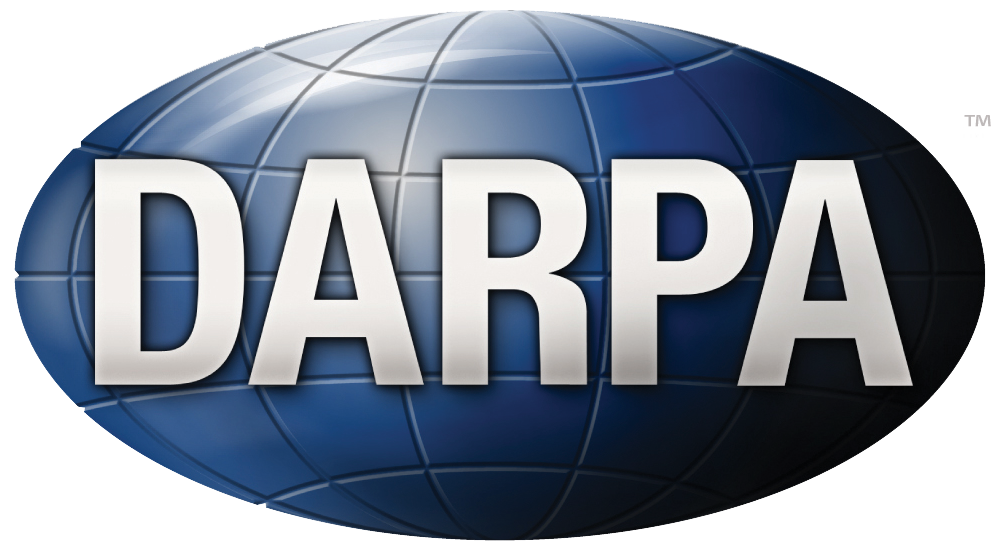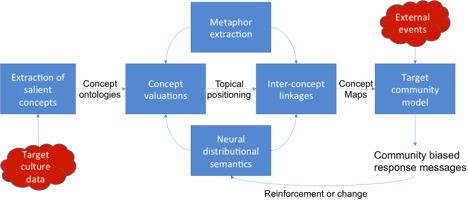Computational Ethnography from Metaphors and Polarized Language

The objective of this project is to develop a methodology and accompanying software tools for constructing dynamic socio-behavioral models of communities based on online content that their members produce. These communities, or subcultures within a larger society, can be defined along many identity dimensions, including political, religious, ethnic, or professional. Such communities develop their unique value systems, which are shared by community members and often differ fundamentally from other communities’ value systems as well as from those of the larger society. One way of representing a value system is to identify a set of opinions or valuations applied to salient concepts that are shared by members of a community. These concepts may include broad notions such as equal opportunity or gun control, as well as narrower concepts such as appropriate dress code for business functions. Valuations applied to these concepts may be on a discrete scale, or may be binary (e.g., right‐wrong, true-false). A community can thus be defined by the set of salient concepts that its members recognize, along with the values they assign to them. We may represent these mathematically as vectors in an N‐dimensional concept space, which are adapted from Topical Positioning Models we developed for sociolinguistic analysis of conversation.
A further objective is to apply the Topical Positioning models to derive culturally biased interpretations of novel information by prototyping the process by which such new information is adapted to fit into the community current model. We are implementing several modes of such adaptation that exploit human cognitive biases including (a) outright rejection, by interpreting the information as false (“fake news”); (b) assimilation, by framing the information to fit onto existing model for example by changing implicit assumptions; and (c) adaptation, by allowing an alteration of the model in order to achieve assimilation. This latter option allows for dynamic adjustments to the model in order to maintain its currency and continued accuracy in the future.
Approach
- Automatically acquire cultural models that represent the worldviews of communities and subcultures from their online presence
- Capture collective topical positioning behavior of the target communities toward salient concepts
- Show how these attitudes evolve over time, including in response to external influences
- Demonstrate how this system of attitudes acts like an interpretive and defensive tool by allowing the community to reject or distort incoming information

Impact
- The goal is a computational methodology for constructing dynamic socio-behavioral models of communities based on their online presence
- The extended Topical Positioning Model will capture community-level concept valuations and inter-concept linkages that reflect the community’s collective “mind”
- The models will be used to obtain culturally biased interpretations of novel information by target communities
